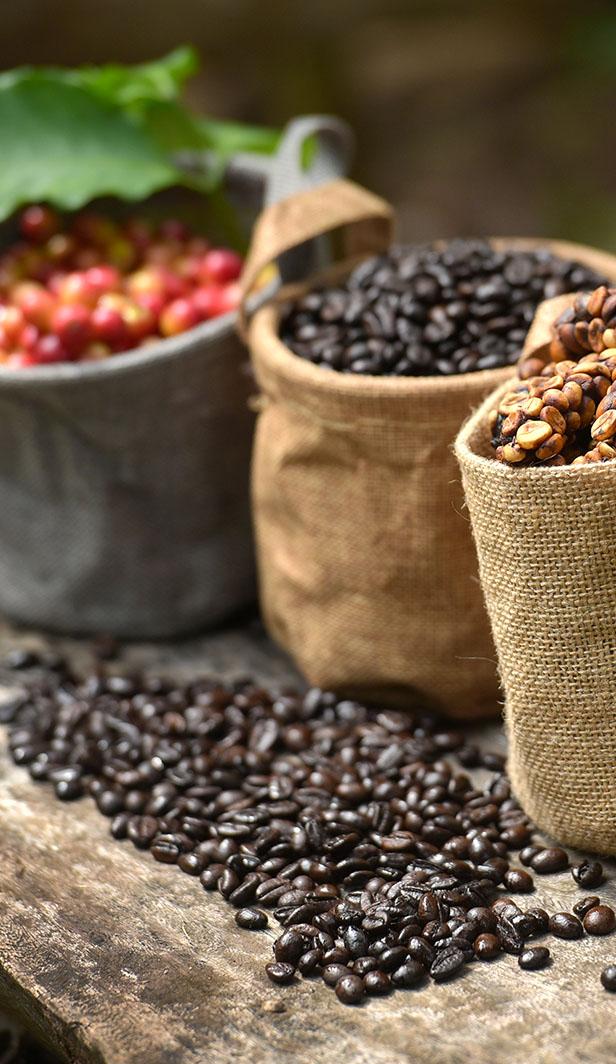Coffee as inspiration
In the Middle East, Arabia and North Africa, coffee (Qahwa) has been widely used to settle marriages, contracts, and blood feuds, sometimes even seen as an offering of peace to end mutiny. In certain parts of the Middle East, Arabian coffee is used to greet visitors. It is said that if someone refuses an offering of coffee when entering one’s home, then they are about to ask you for something very close to their heart, such as forgiveness or permission. If this is accepted, then Qahwa coffee is enjoyed in celebration.
In many Arabic cultures, drinking coffee is a reason to get together and discuss news and mutual interests. In most traditional homes, the head of the household will take the first sip of Qahwa coffee to make sure that it is satisfactory for the rest of the family to drink too. There is a term used for Qahwa that does not taste satisfactory, and therefore may tarnish the reputation of the head of the family, if served to others. This is known as “Finjan al hail”. To this day, Arabic coffee continues to inspire the people of Arabia, the Middle East, and North Africa to create music, poetry and art.
The history of Arabian Coffee
Coffee was, according to apocryphal legend, discovered in Yemen a thousand years ago. The story begins with a goat herder named Ali, who thought that after his goats ate the fruit of a certain shrub, their energy levels increased. He took the shrub to a monastery and used the berries to keep himself awake during the long hours of meditation. The other monks considered the shrub to be a sedative and thus threw the shrub into the fire to burn.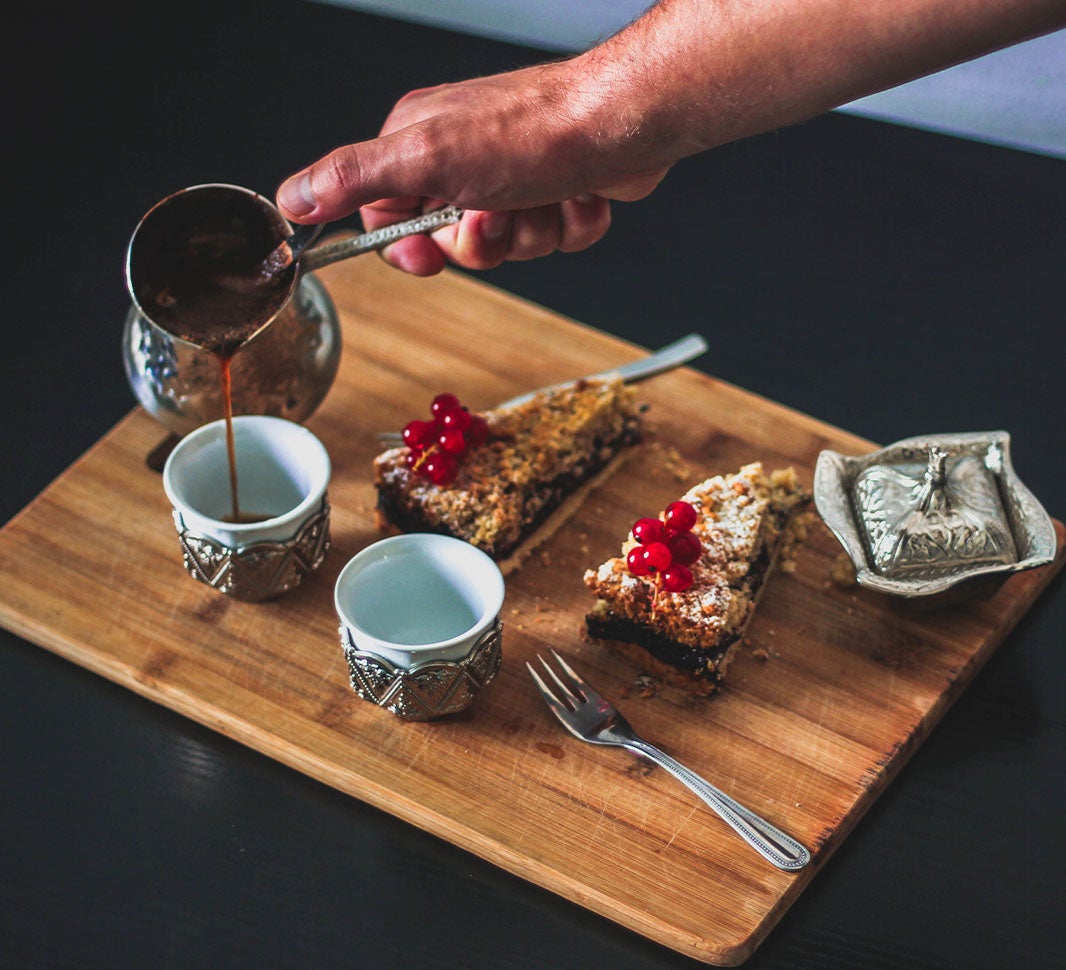
Is Arabian coffee made of Arabica beans?
Usually, Arabian coffee is made primarily with Arabica beans. The reason for this is mainly geographical as well as due to market supply. There are large amounts of market grade Arabian coffee or Turkish coffee that are of unknown origin. However, some Arabian coffee blends contain a combination of both Arabica and Robusta coffee beans.
Arabian Coffee Brewing Methods
There are various brewing methods around the world, but most Arab countries use one of two methods. Most Arabian coffee may be served with a hint of cardamom or served plain. The coffee beans are either heavily or lightly roasted before the cardamom is added. The coffee is traditionally roasted at home and then ground, brewed and served to guests. The coffee is served with dried fruits, nuts, or candied fruit to soften its bitter taste. A pot called a “Dallah” is used to serve the freshly brewed Arabian coffee, which is poured into small cups without handles. The amount of coffee usually just about covers the bottom of the cup.
How to make Qahwa coffee
As mentioned, Qahwa coffee is the most popular throughout Arabic coffee culture, made from green coffee beans and cardamom. Qahwa coffee is so important in traditional values across Arabic countries that it is also the preferred hot drink at weddings and other celebrations. It is also consumed for breaking the fast-during Ramadan.
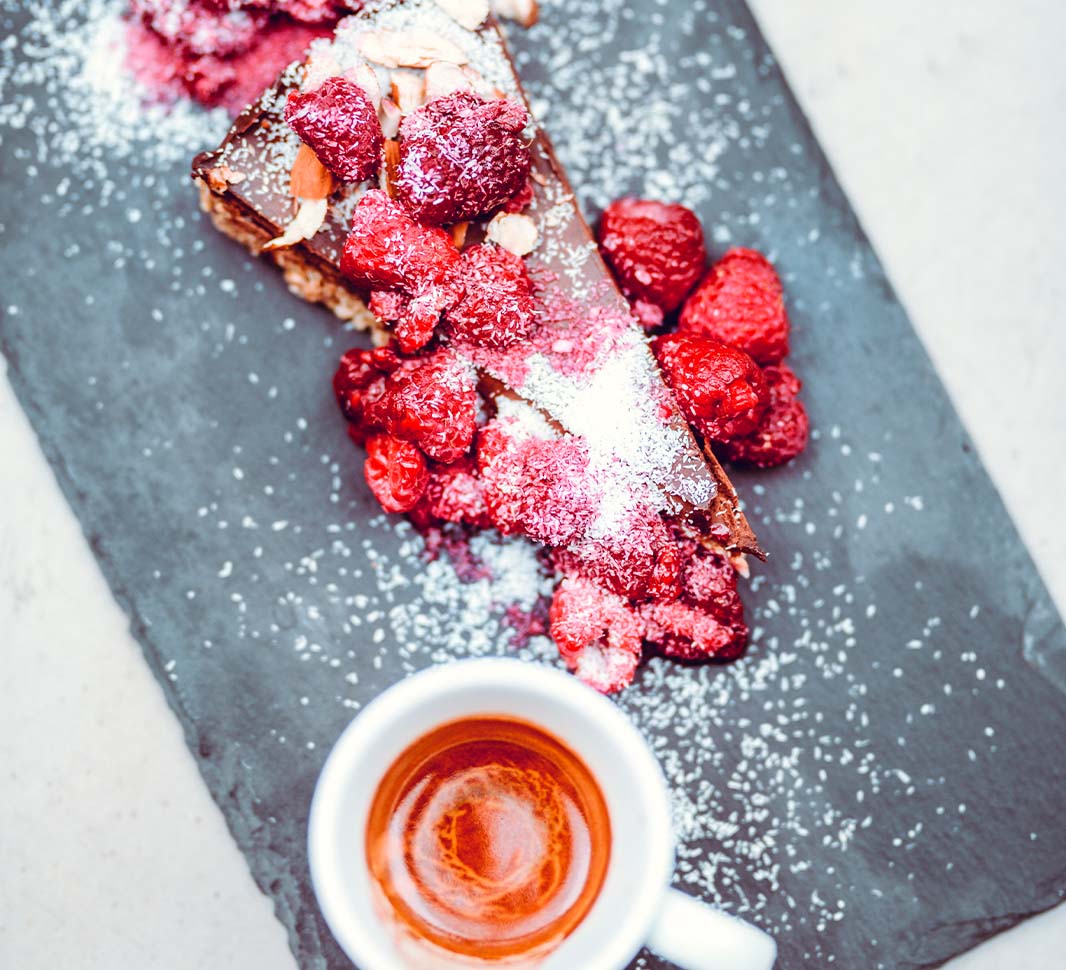
Ingredients for Qahwa coffee
• Green coffee beans, lightly roasted and coarsely ground
• Crushed cardamom
• Water
• Saffron strands
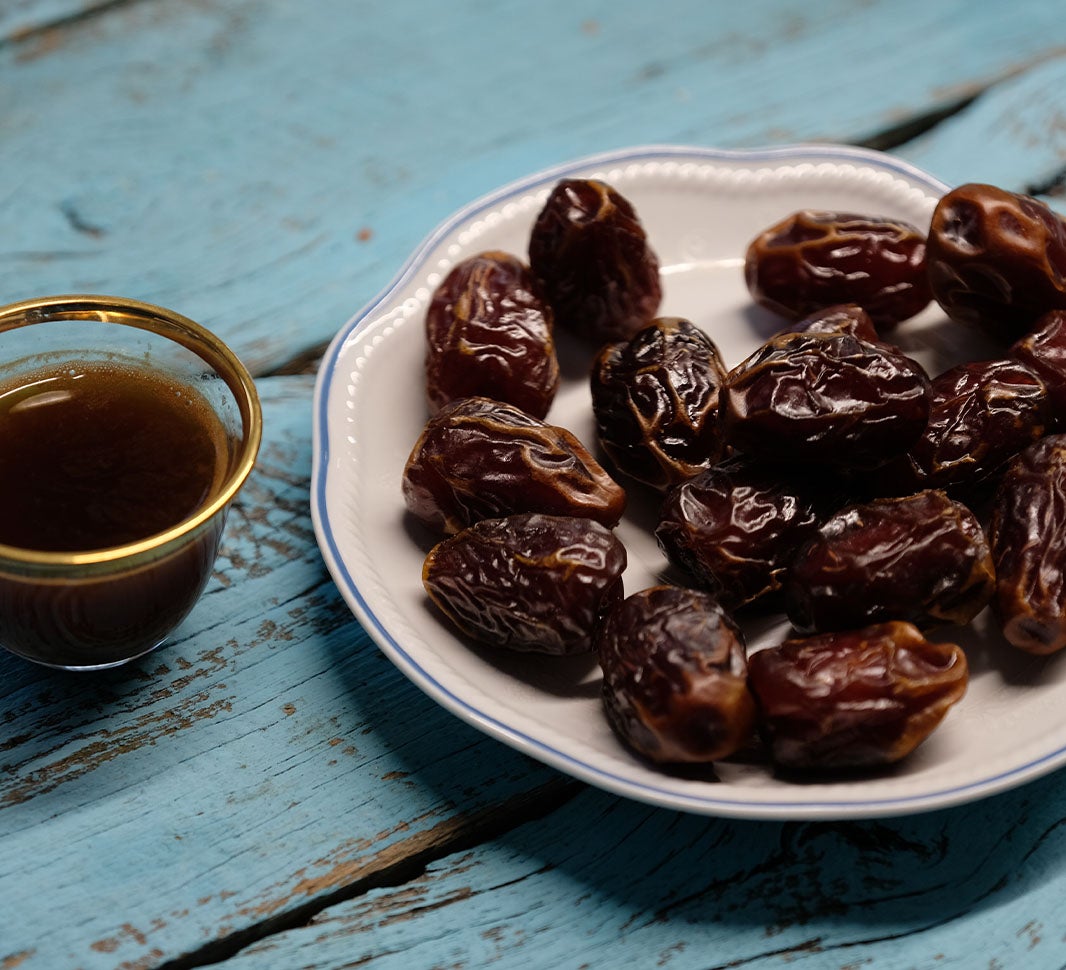
Brewing process for Qahwa coffee
To make the most authentic Qahwa coffee, the water will need to be brought to the boil in a saucepan. Add the coffee once the water is boiling. After around 10 minutes of boiling, add the crushed Cardamom, then stir for around 5 minutes. Turn off the heat and cover the pan to allow the coffee grounds to settle. This should be left for about a minute, remember not to stir. This is when the Saffron should be added. Strain and pour the now steaming coffee into your chosen mug, or teapot. Now, your very own Qahwa coffee is ready to be served.
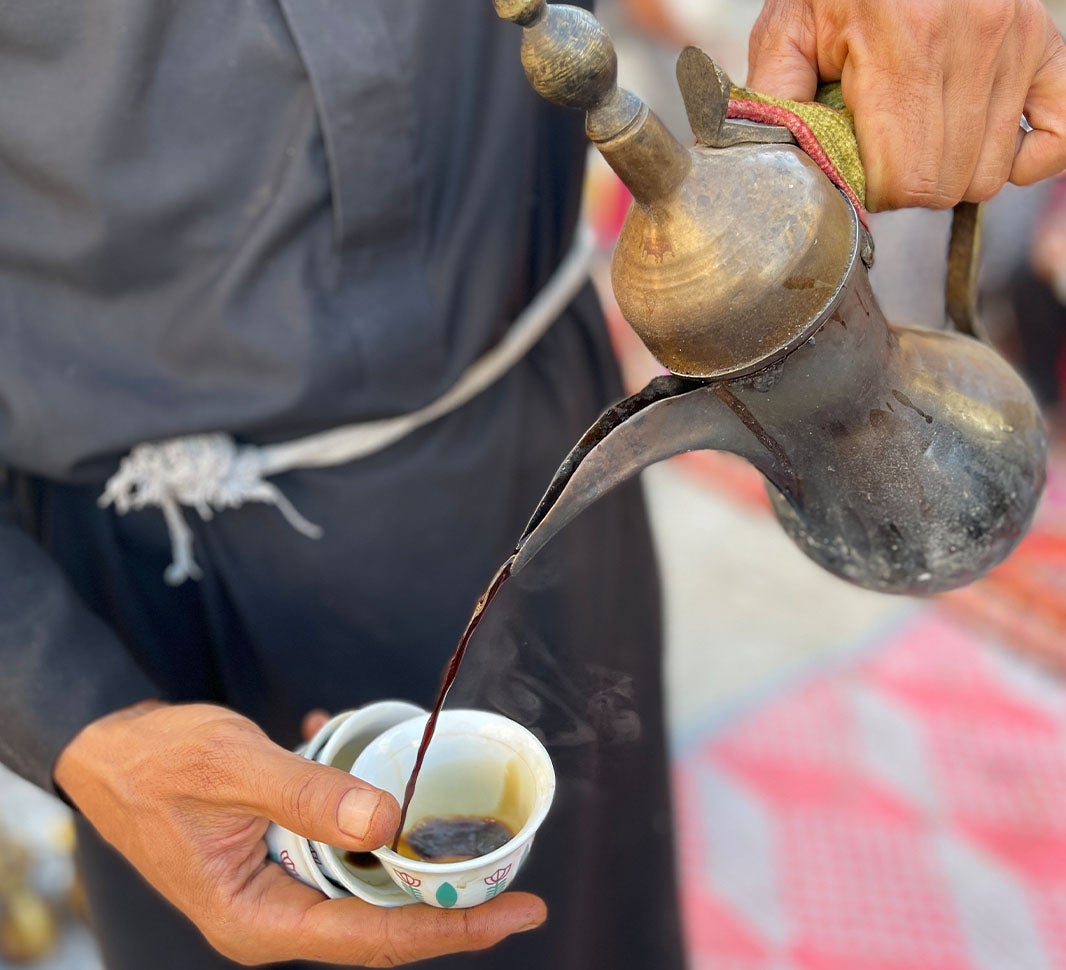
How to order an Arabian coffee
If you’re planning on heading to the Middle East, you will want to know how to order your perfect Qahwa coffee. Here are a few ways to order your coffee:
• Qahwa Sada - Black coffee with no sugar
• Qahwa Ariha - Lightly sweetened coffee
• Ahwa Mazboot - Medium amount of sugar in coffee
• Qahwaziyada - Very sweet coffee
Arabian coffee is much more than just a drink in Arabic culture, it is a way of life that brings people together. The Arab world’s great respect for their traditional brewing and drinking methods is inspiring. Make your next trip that much more enriching by immersing yourself in the rich traditional values, brewing methods and delicious Arabian coffee. Next, discover coffee culture in Malaysia.
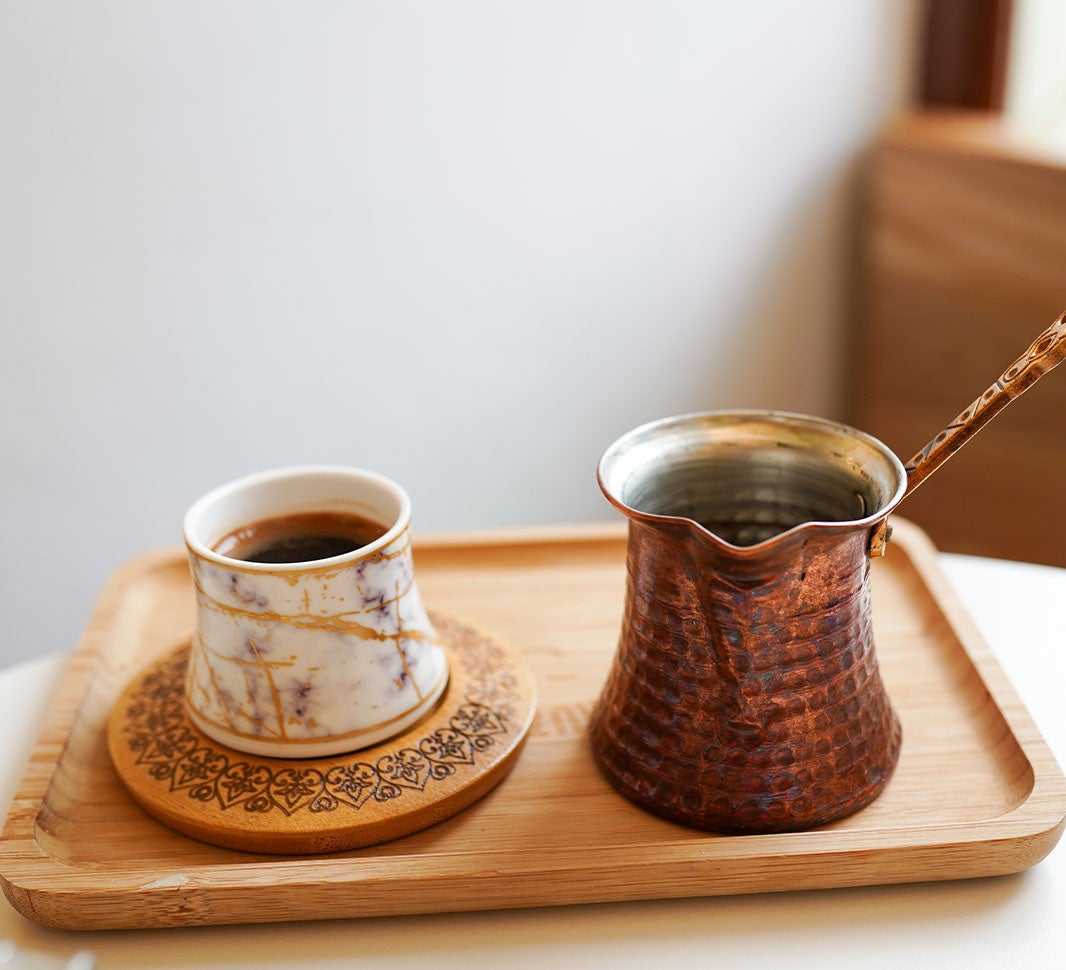
Today’s community favourites
Discover some of the most enjoyed articles from across the site




